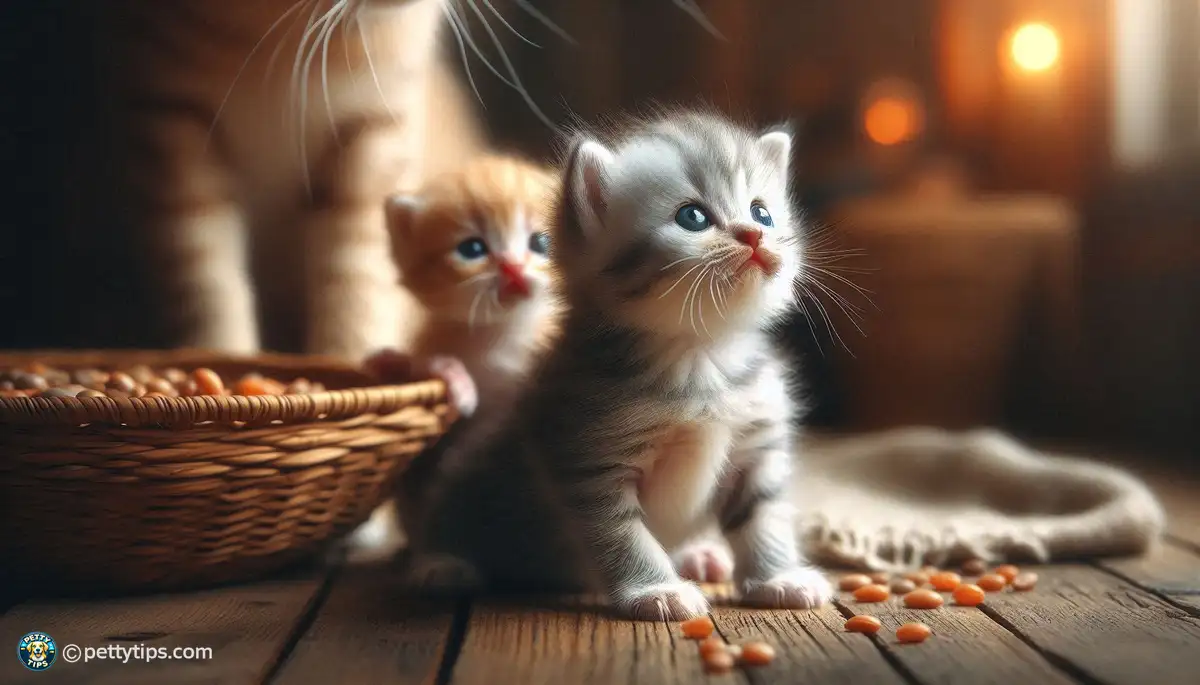- Home
- Cat Behavior
- The Role of Early Socialization in Cat Behavior
The Role of Early Socialization in Cat Behavior

The Foundations of Feline Behavior
Feline behavior is a fascinating subject that encompasses a wide range of traits, from the aloof independence often associated with cats to their affectionate and playful nature. But what many cat owners may not realize is that much of a cat's behavior is shaped during their earliest stages of life. Like humans, cats are influenced by their environment and experiences during their formative weeks. This is where the concept of socialization comes into play, laying the groundwork for their future behavior and interactions with humans, other animals, and their surroundings.
The Critical Window of Opportunity
Socialization in cats primarily occurs during a critical window of opportunity, typically between two to seven weeks of age. During this period, kittens are highly impressionable and more receptive to new experiences, stimuli, and interactions. It's a crucial time when positive encounters with people, other animals, and various environments can have a lasting impact on their behavior and temperament throughout their lives. However, it's essential to note that the socialization process can extend beyond this period, albeit with potentially diminished effectiveness.
The Role of Early Experiences
Early experiences play a pivotal role in shaping a cat's behavior and overall personality. Positive interactions during this time can lead to a confident, well-adjusted cat who is comfortable with various situations and individuals. Conversely, negative experiences or lack of socialization can result in shyness, fearfulness, and even aggression towards people or other animals. Kittens raised in isolation or deprived of social contact during their critical developmental stage may struggle to adapt to new environments or form trusting relationships later in life.
Practical Approaches to Socialization
Gentle Handling and Positive Reinforcement
One of the most effective ways to socialize kittens is through gentle handling and positive reinforcement. By regularly handling and interacting with kittens in a calm and reassuring manner, you can help them feel secure and comfortable around humans. Use treats, praise, and playtime to reinforce positive behaviors, gradually introducing them to new experiences and environments. It's essential to approach socialization with patience and sensitivity, allowing kittens to progress at their own pace without overwhelming them.
Exposure to Various Stimuli
Exposing kittens to a variety of stimuli is crucial for their social development. Introduce them to different sounds, sights, smells, and textures in a controlled and positive manner. This could include household noises, such as vacuum cleaners or doorbells, as well as interactions with other pets and unfamiliar people. Providing enrichment activities, such as puzzle toys and climbing structures, can also help stimulate their curiosity and build confidence. Gradually increasing the level of stimulation can help kittens adapt to new experiences and become more resilient in different situations.
Positive Interactions with Other Animals
Socializing kittens with other animals, particularly well-socialized adult cats, can have numerous benefits. It allows kittens to learn appropriate social cues, communication skills, and boundaries through observation and interaction. Supervised play sessions with compatible cats or gentle introductions to cat-friendly dogs can help kittens develop social skills and reduce the likelihood of fear or aggression towards other animals in the future. However, it's essential to monitor these interactions closely and intervene if any signs of stress or aggression arise.
Challenges and Considerations
Overcoming Fear and Anxiety
Some kittens may be naturally more cautious or fearful, requiring extra patience and care during the socialization process. Gradual exposure to stimuli and positive reinforcement can help build their confidence over time. However, it's crucial to recognize and respect their individual temperament, avoiding forceful or intimidating approaches that could exacerbate their anxiety. Creating a safe and predictable environment with plenty of hiding spots and vertical space can also help anxious kittens feel more secure as they acclimate to new experiences.
Addressing Behavioral Issues
In some cases, inadequate socialization during kittenhood can contribute to behavioral issues later in life, such as aggression, inappropriate elimination, or excessive fearfulness. Addressing these issues may require a combination of behavior modification techniques, environmental management, and, in severe cases, consultation with a qualified animal behaviorist. Early intervention and consistent, positive reinforcement are key to helping cats overcome behavioral challenges and lead fulfilling lives as beloved companions.
Long-Term Socialization Efforts
While early socialization lays the groundwork for a cat's behavior, ongoing efforts are necessary to maintain and reinforce positive social skills throughout their lives. Regular interaction, enrichment, and exposure to new experiences can help prevent regression and ensure that cats remain confident and well-adjusted into adulthood. By prioritizing socialization and providing a supportive environment, cat owners can foster strong bonds and enriching relationships with their feline companions for years to come.
